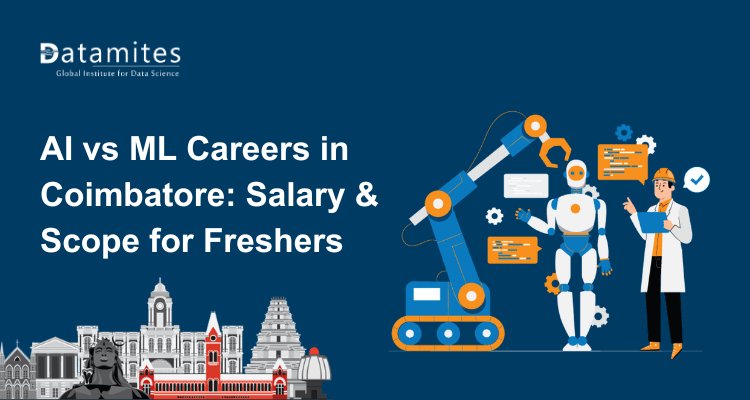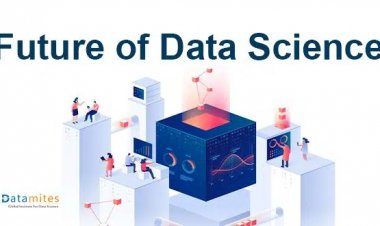What is the Work of a Data Scientist?

Data science is a multidisciplinary field that combines statistical analysis, machine learning, and data engineering to derive actionable insights from structured and unstructured data. It empowers organizations to make informed decisions, predict trends, and optimize processes. This article explores the qualifications, job responsibilities, career prospects, and required skills for a data scientist.
Understanding Data Science in Simple Words
Data science is a multidisciplinary field that leverages statistical analysis, machine learning, and data engineering to extract insights and knowledge from structured and unstructured data. At its core, data science combines domain expertise, programming skills, and knowledge of mathematics and statistics to create actionable insights from data. By applying various techniques and algorithms, data scientists help organizations make informed decisions, predict trends, and optimize processes.
Data Scientist Qualifications and Salaries
Becoming a data scientist typically requires a strong educational background in a relevant field. Most data scientists hold at least a bachelor’s degree in computer science, mathematics, statistics, or a related discipline. However, many roles prefer candidates with a master’s degree or Ph.D., especially for more advanced positions.
In terms of salary, data scientists are among the most well-compensated professionals in the tech industry. According to recent industry reports, the average salary for a data scientist in the United States ranges from $95,000 to $130,000 per year, depending on experience, education, and location. Senior data scientists and those in leadership roles can earn significantly more.
Refer these below articles:
- What is Certified Data Scientist Course?
- Engineering a Future in Data Science
- Climbing the Data Science Ladder - Data Science Levels
Data Scientist Job Responsibilities
The role of a data scientist encompasses a wide array of tasks and responsibilities, including:
- Data Collection and Cleaning: Gathering data from various sources and ensuring its quality and consistency.
- Data Analysis: Using statistical tools and techniques to analyze data and identify patterns or trends.
- Model Building: Developing and implementing machine learning models to solve specific business problems.
- Visualization: Creating visual representations of data to communicate findings to stakeholders effectively.
- Reporting: Presenting insights and recommendations to non-technical stakeholders in a clear and concise manner.
- Collaboration: Working with cross-functional teams, including business analysts, engineers, and executives, to align data projects with business objectives.
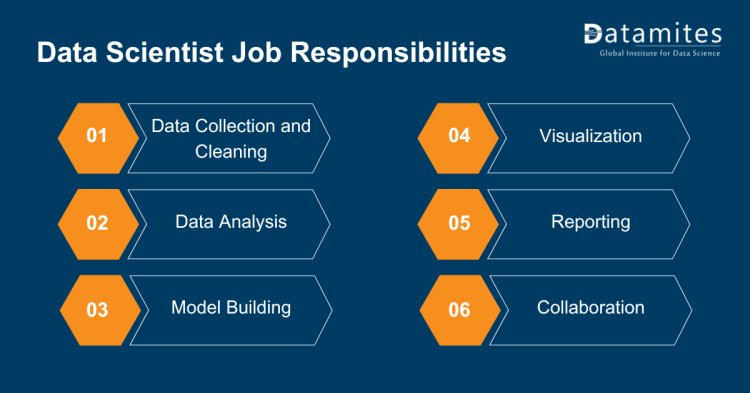
What is the Career Outlook for Data Scientists?
Choosing a career as a data scientist can be highly rewarding, offering numerous opportunities for professional growth and development. Here's what you can expect:
- Dynamic and Engaging Work: Data science is a rapidly evolving field. You will frequently encounter new challenges and projects that require innovative solutions, keeping the work engaging and dynamic.
- Continuous Learning: The field of data science is constantly advancing. You will need to stay updated with the latest tools, technologies, and methodologies, fostering a culture of continuous learning.
- Impactful Contributions: Data scientists play a crucial role in shaping business strategies through data-driven insights. Your work will have a significant impact on decision-making processes and overall business success.
- Collaborative Environment: You will often work with diverse teams, including engineers, business analysts, and executives, providing a rich collaborative environment.
- Career Advancement: With experience, you can move into senior roles, such as lead data scientist or data science manager, which come with increased responsibilities and higher compensation.
- Industry Demand: The demand for skilled data scientists is high across various industries, including technology, finance, healthcare, and retail. This high demand translates into job security and numerous career opportunities.
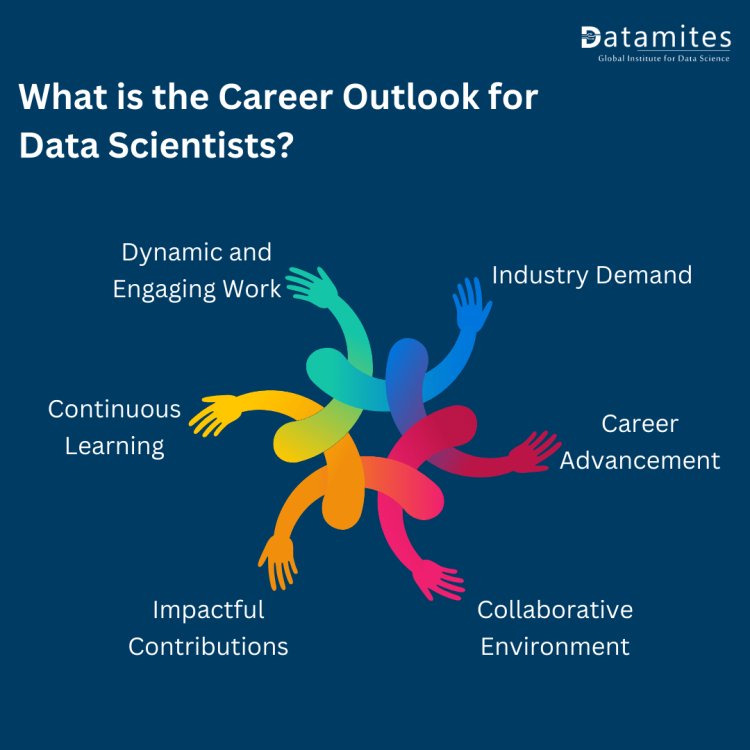
Required Skills to Become a Data Scientist
To excel as a data scientist, one needs a robust set of technical and soft skills, including:
- Programming: Proficiency in programming languages such as Python, R, or SQL.
- Statistical Analysis: Strong understanding of statistical methods and their applications.
- Machine Learning: Knowledge of machine learning algorithms and frameworks.
- Data Manipulation: Experience with data wrangling and manipulation tools like Pandas, NumPy, and Excel.
- Data Visualization: Ability to create compelling data visualizations using tools like Tableau, Power BI, or Matplotlib.
- Problem-Solving: Analytical thinking and problem-solving skills.
- Communication: Excellent communication skills to convey complex technical information to non-technical audiences.
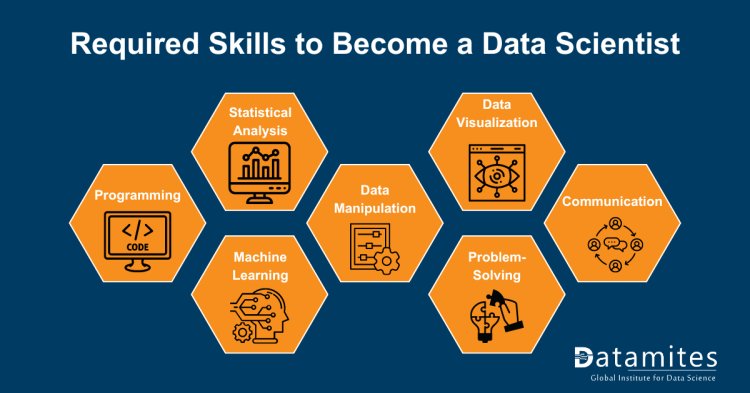
The role of a data scientist is integral to modern organizations, providing critical insights and driving data-informed decisions. With the right qualifications, a robust skill set, and a passion for continuous learning and data science course can be both rewarding and impactful.
Datamites data science and data analyst courses designed to equip professionals with cutting-edge skills and industry-recognized certifications. Our data science programs provide both theoretical knowledge and practical experience, ensuring participants are well-prepared for successful careers in data science and analytics. Many Datamites alumni are working in reputed organizations as data scientists and data analysts.
Read these below articles:

